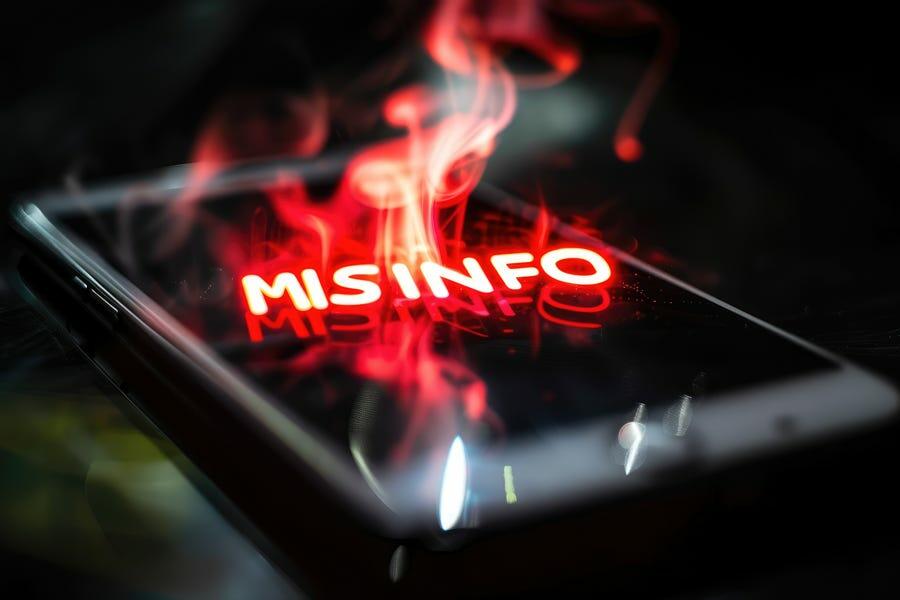The recent campaign season has reignited a contentious debate over misinformation and disinformation, with accusations flying across the political spectrum. A notable incident involved allegations against FEMA for allegedly avoiding homes displaying Trump signs, which was initially dismissed as misinformation until FEMA acknowledged the events. Media figures, like MSNBC’s Jen Psaki, have called for legal changes to combat what is termed a growing scourge of misinformation. In this politically charged environment, scrutiny has turned toward how the government allocates taxpayer dollars to study and combat misinformation—efforts that have raised concerns about censoring dissenting voices online.
Since 2021, the Biden-Harris administration has significantly increased funding directed at research into misinformation, totaling approximately $267 million, with at least $127 million specifically aimed at COVID-related misinformation. The COVID-19 pandemic was a catalyst for this focus, as officials claimed misinformation threatened adherence to federal public health recommendations, many of which have since drawn skepticism regarding their scientific validity. Through funding and collaboration with social media companies, the government sought to suppress criticism and elevate official messaging. Supreme Court rulings have given such collaborations a green light under First Amendment protections, although prominent tech leaders have expressed their concerns about the ethical implications of government pressure on speech.
The National Science Foundation (NSF) faced intense scrutiny from the U.S. House Committee on the Judiciary and the Select Subcommittee on the Weaponization of the Federal Government for financing projects that support online censorship. The alarming conclusion of the report indicated these taxpayer-funded initiatives aimed to create artificial intelligence tools for managing public discourse, thus favoring certain viewpoints and suppressing others. Overall, federal records indicate that misinformation-related spending tied to COVID-19 reached $127 million, showing that this trend of funding had exploded in the wake of the pandemic. This significant expenditure has continued to erode public trust in governmental and scientific institutions, complicating societal issues that extend beyond mere misinformation.
Shockingly, many of the misinformation-related grants can be traced back to the Trump administration, which initiated funding as early as 2017. However, funding levels rose sharply post-2020, primarily aimed at addressing misinformation during the pandemic. The grants primarily funded technological tools for monitoring and screening misinformation tied to multiple health crises, establishing a precedent for censorship policies in subsequent administrations. The grants reveal a strong ideological motivation behind spending patterns aimed at silencing public debate, rather than promoting open discourse and critical thinking concerning public health initiatives.
In tandem with financial support for public-facing campaigns, numerous grants were allocated to academic institutions studying the propagation of misinformation and determining how to counter it. These projects ranged from exploring misinformation within minority communities to developing frameworks aimed at improving public health messaging. The studies often seek to help the government refine its strategies for presenting information in ways that reduce fear and disbelief related to public health measures. However, the underlying assumption that the government can serve as a neutral arbiter of truth has proved flawed, as evidence shows that many health-related recommendations, such as social distancing measures, lacked rigorous scientific backing.
Moreover, some grants aimed at undermining political opponents have also emerged as a troubling aspect of misinformation funding. For instance, a $200,000 study funded by the NSF explicitly targeted former President Donald Trump, alleging that populist leaders hindered societal solidarity during the pandemic. This inclination towards politicized narratives raises critical questions about which perspectives the government endorses while ostensibly battling misinformation. Another noteworthy funding initiative involved the National Academies of Sciences investigating the spread of misinformation, raising concerns about potential biases and the credibility of the research produced.
In summary, the federal government’s escalating involvement in combating misinformation, primarily through funding and partnerships with private sectors and academic institutions, has not stemmed the flow of doubt and criticism directed at public health messaging. Reports indicate that despite vast expenditures aimed at increasing public trust in health policies, many Americans have become more skeptical of governmental directives, especially following significant misjudgments regarding public health Guidance. The multitude of grants intended to silence critics or manipulate public opinion calls into question the ethics and effectiveness of government involvement in managing narratives surrounding misinformation. A reevaluation of this strategy is necessary, particularly as the incoming administration considers the implications of ongoing taxpayer funding to combat ideologically motivated narratives.

